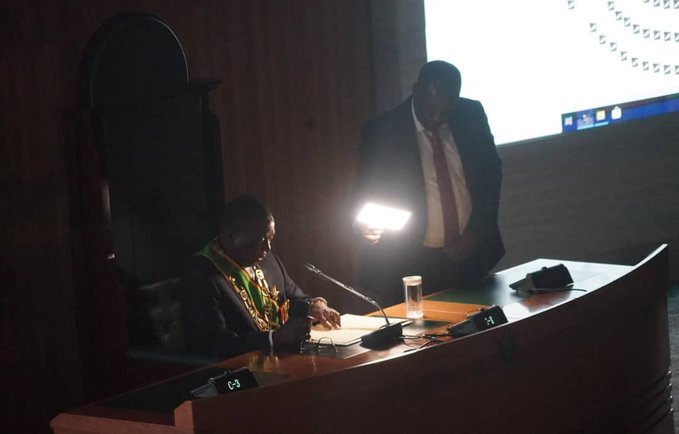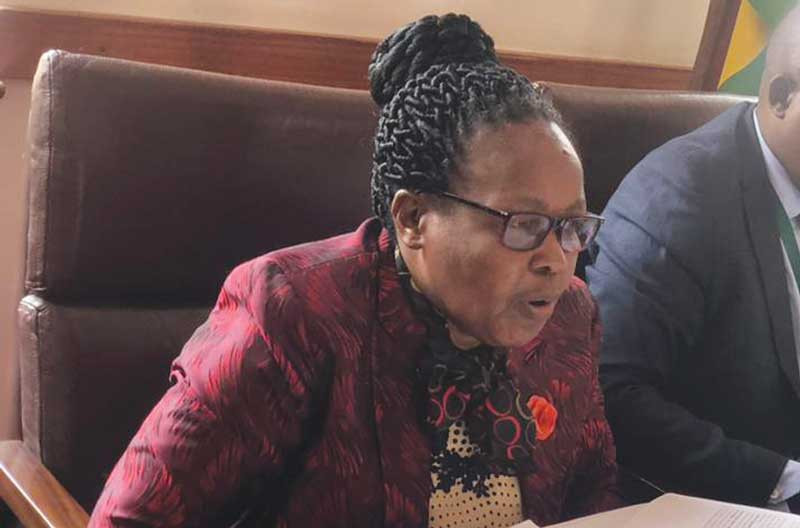The latest report from Zimbabwe's Auditor General has exposed serious violations of public finance management laws, revealing that more than US$597 million in Treasury payments remain unaccounted for as of June 2025. The funds were paid by the Treasury in 2024 to various service providers on behalf of Ministries, Departments, and Agencies (MDAs), but were never properly recorded or reconciled by the responsible institutions.
The report details that Treasury disbursed a total of US$1.986 billion during the 2024 financial year. However, MDAs only accounted for US$1.388 billion, leaving a staggering US$597.7 million in payments unexplained and missing from the Public Finance Management System (PFMS). This discrepancy constitutes a serious misstatement in the country's public accounts and raises alarm over potential financial misconduct.
In a direct excerpt from the report, the Auditor General stated: "Direct payments amounting to US$1,986,391,797 were made to service providers on behalf of the MDAs by Treasury during the 2024 financial year. However, MDAs accounted for US$1,388,673,713, leaving a balance of US$597,718,082 as at June 18, 2025. In some instances, the payments were not uploaded onto the PFMS. MDAs' expenditure was understated by the direct payments."
The failure by government departments to accurately upload payment records into the PFMS has created significant loopholes, weakening fiscal controls and increasing the risk of fraud, embezzlement, and illicit enrichment. The report suggests that this situation has been exacerbated by a general lack of oversight and inadequate enforcement of financial reporting standards.
A particularly troubling period cited in the report occurred during the country's currency changeover from the Zimbabwe Dollar (ZWL) to Zimbabwe Gold (ZWG), between April and August 2024. During this five-month window, the PFMS experienced prolonged downtime, forcing many MDAs to operate outside the system. The Auditor General noted that financial activities carried out during this time were not consistently uploaded into the system once operations resumed, further distorting expenditure records and eroding accountability.
"There was a downtime of the Public Financial Management System… The financial information that would have been processed outside the system was not uploaded… Such information would misstate expenditure figures," the report noted.
The currency transition created what the Auditor General referred to as a "black box" in the government's financial processes, where a lack of system access and proper documentation allowed room for possible misuse of public funds with little to no traceability.
In addition to the mismanagement of payments, the report also highlights a troubling increase in the abuse and mismanagement of fuel allocations across several MDAs. Seven government institutions were flagged for failing to maintain proper fuel records, neglecting reconciliations, and demonstrating weak supervisory oversight. These failures point to a continued disregard for basic accountability protocols, with fuel — a critical and often scarce resource — vulnerable to theft, misuse, or wastage.
The Auditor General attributes the rise in fuel-related losses to poor internal controls, including the absence of maintained fuel registers, inconsistent recordkeeping, and a lack of checks and balances. These inefficiencies not only risk public resources but also hamper service delivery across key sectors.
These revelations present a direct challenge to the constitutional principles outlined in Section 298 of the Constitution of Zimbabwe, which mandates transparency, accountability, and the responsible use of public funds. The widespread failure to uphold these standards, as reflected in the report, signals a systemic governance crisis that demands immediate attention.
With hundreds of millions unaccounted for, observers are calling for swift and decisive action from government authorities. Financial governance experts warn that unless stronger internal controls and enforcement mechanisms are introduced, Zimbabwe's public finances will continue to suffer, and public trust in state institutions will further erode.
The Auditor General's Report ultimately serves as a stark reminder that financial accountability is not a bureaucratic formality but a foundational element of effective governance. Without urgent reforms and consequences for mismanagement, the cycle of irregularity, waste, and potential corruption is likely to persist — to the detriment of the country's development and its people.
- newzimbabwe
 Zimbabwe announces strict enforcement of axle load limits
Zimbabwe announces strict enforcement of axle load limits  SA decry 'non-existent' Beitbridge border post security
SA decry 'non-existent' Beitbridge border post security  Millions celebrate Diwali festival in India
Millions celebrate Diwali festival in India  Zimbabwe's dollar stock exchange surges 45%
Zimbabwe's dollar stock exchange surges 45%  Gold edges up as traders await guidance
Gold edges up as traders await guidance  Karo Platinum Project capex rises to US$546m
Karo Platinum Project capex rises to US$546m  Young Investment Professional (YIP) Graduate Programme 2019
Young Investment Professional (YIP) Graduate Programme 2019 










 Young Investment Professional (YIP) Graduate Programme 2019
Young Investment Professional (YIP) Graduate Programme 2019
Editor's Pick